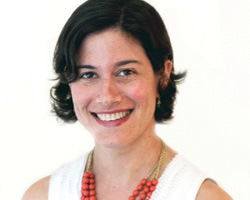Director, Every Hour Counts
Jessica Donner is director of Every Hour Counts (formerly the Collaborative for Building-After School Systems), a coalition of national citywide organizations that increase access to quality learning opportunities, particularly for underserved students. The organization is a leading voice promoting expanded-learning systems, which provide learning and enrichment through afterschool, summer, and other initiatives.
Donner manages the organization's efforts to develop policy recommendations and solutions, test the feasibility of policy and practice recommendations and disseminate findings, and deliver technical assistance to communities to build expanded learning systems. Prior to joining Every Hour Counts, she directed statewide and national service-learning initiatives at the National Service-Learning Partnership at the Academy for Educational Development and the Massachusetts Department of Education. She holds a master's degree in urban policy and management from The New School, and a bachelor's degree in English from the University of Pennsylvania.
What are the accomplishments you are most proud of?
I'm most proud of Every Hour Counts' federal policy, technical assistance, and research achievements. Because we represent leading on-the-ground afterschool practitioners, our federal policy recommendations are informed by promising practices. Our policy wins build off the best of afterschool around the country—such as the value of meaningful school and community partnerships.
Every Hour Counts has been working over the past few years to develop a shared set of outcomes at the system, program, and youth levels, and has developed a Measurement Framework. This work builds off of our intermediary partners' systemic data collection efforts and the latest research. The Framework underscores the importance of system building and has the potential to support the development of high-quality afterschool programs across the country.
Through our technical assistance and communications activities, communities around the country have improved the quality of afterschool programs at scale, based on promising practices from our intermediary partners.
Where do you see the field in ten years?
We're seeing increased energy around connections with formal education in a very positive way, with collaborative teaching and joint planning between formal educators and community educators. This work is being modeled by Every Hour Counts intermediaries such as TASC, Providence After School Alliance, and Boston After School and Beyond, and has the potential to influence the next decade of afterschool practice. I also see many more coordinated citywide efforts to bring high-quality afterschool to scale, led by intermediary organizations.
What are the biggest opportunities for the afterschool industry?
Efforts to lengthen the school day and year can be a strategic opportunity for afterschool providers to ensure that students have access to more engaging learning opportunities that support their development. Increased recognition by educators of the importance of social and emotional outcomes can be an opportunity for the afterschool field, as afterschool is often seen as a critical partner in influencing these skills.
What are the biggest challenges facing afterschool?
Inadequate financial resources for programing. Also, often system-building supports such as technical assistance, data systems, and coordinating intermediaries lack support and financial resources, yet are critical to ensuring high-quality programs and positive youth outcomes.
What makes an after school program successful?
Clearly, having front-line staff and site directors that love working with young people and have content-rich and youth development skills make or break a program. Myriad age-appropriate activities, youth leadership opportunities, and a positive partnership between a principal and after-school program are other markers of a successful afterschool program.
Edited by Amy L Charles, editorial director of AfterSchool Today magazine, the Official Publication of the National AfterSchool Association.

